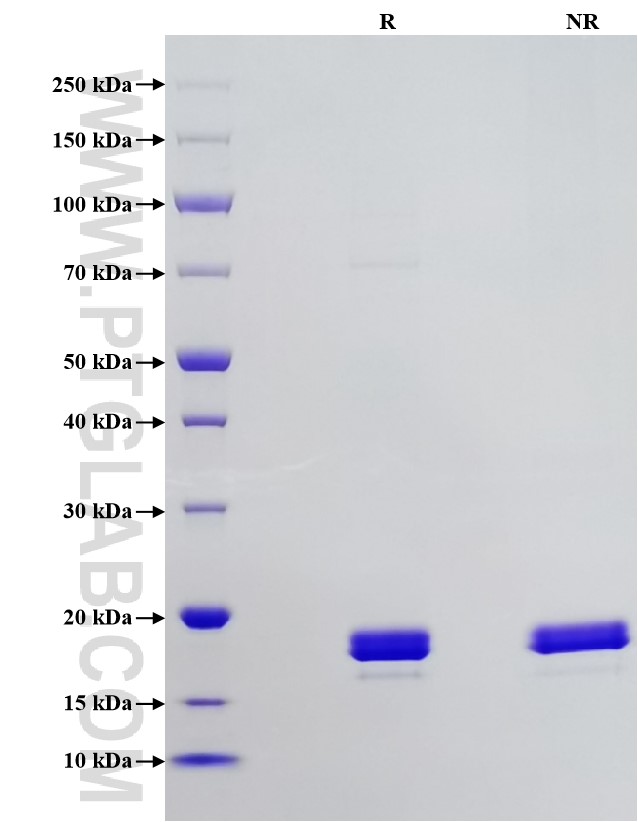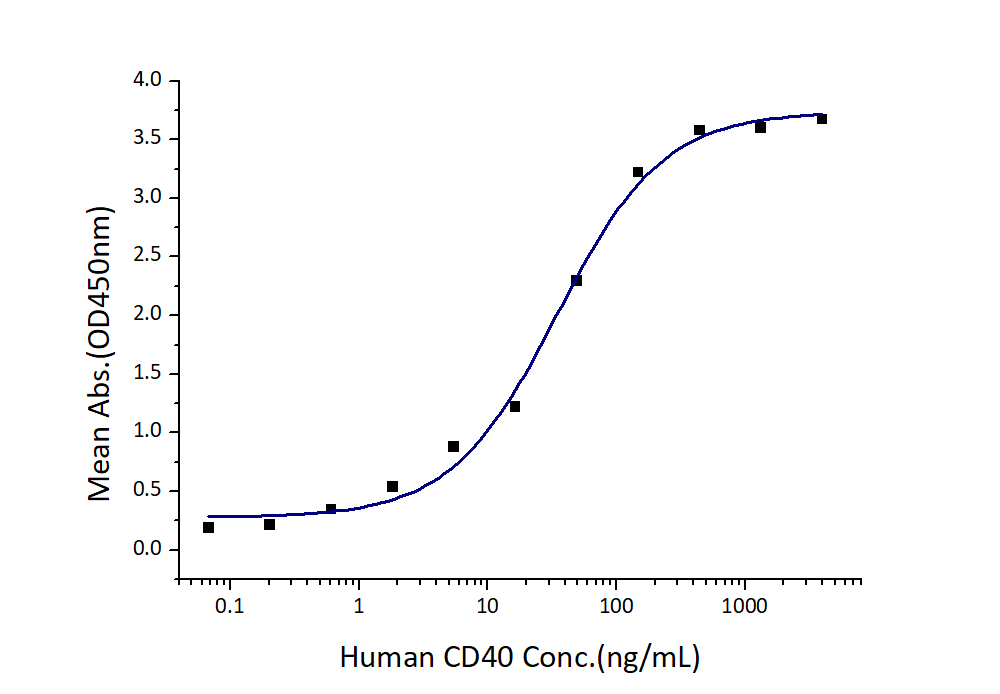Recombinant Human CD40L/CD154 protein (His Tag)
种属
Human
纯度
>95 %, SDS-PAGE
标签
His Tag
生物活性
EC50: 17-68 ng/mL
验证数据展示
产品信息
| 纯度 | >95 %, SDS-PAGE |
| 内毒素 | <0.1 EU/μg protein, LAL method |
| 生物活性 | Immobilized Human CD40L (His tag) at 2 μg/mL (100 μL/well) can bind Human CD40 (Myc tag, His tag) with a linear range of 17-68 ng/mL. |
| 来源 | HEK293-derived Human CD40L protein Met113-Leu261 (Accession# P29965) with a His tag at the N-terminus. |
| 基因ID | 959 |
| 蛋白编号 | P29965 |
| 预测分子量 | 17 kDa |
| SDS-PAGE | 17-19 kDa, reducing (R) conditions |
| 组分 | Lyophilized from 0.22 μm filtered solution in PBS, pH 7.4. Normally 5% trehalose and 5% mannitol are added as protectants before lyophilization. |
| 复溶 | Briefly centrifuge the tube before opening. Reconstitute at 0.1-0.5 mg/mL in sterile water. |
| 储存条件 |
It is recommended that the protein be aliquoted for optimal storage. Avoid repeated freeze-thaw cycles.
|
| 运输条件 | The product is shipped at ambient temperature. Upon receipt, store it immediately at the recommended temperature. |
背景信息
The CD40 ligand (CD40L), also known as TRAP or CD154, is a member of the TNF superfamily of ligands. CD40L is primarily expressed on activated CD4+ T cells and on a small proportion of CD8+ T cells and platelets. It binds to CD40 on antigen-presenting cells (APC), which leads to many effects depending on the target cell type. It has been suggested that CD40/CD40L interactions regulate oxidative stress and affect various signaling pathways in both the immunological and the cardiovascular systems. The CD40/CD40L system is also involved in tumorigenesis. Its expression is tightly regulated, and abnormal levels of CD40L are associated with the pathogenesis of atheromatous plaque destabilization and thrombotic events. Multiple mutations in CD40LG gene have been identified that are associated with hyper-IgM immunodeficiency syndrome type 1.
参考文献:
1. Elgueta R. et al. (2009). Immunol Rev. 229(1):152-172. 2. Rizvi M. et al. (2008). Trends Mol Med. 14(12):530-538. 3. Michel N A. et al. (2017). Front Cardiovasc Med. 4:40.

